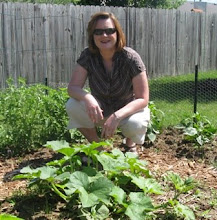This morning I had the luxury of staying in bed and finishing the book I've been reading. It isn't a new book. It was originally published (I think) in 1993. The book is
Children of Men by P.D. James. I originally bought the book and read it probably 12 years ago. I'd been a fan of James' Adam Dagliesh series of mysteries based in England. This book was a serious departure for her, but I remembered liking it. When I heard recently that there is a forthcoming movie by the same name based on the book, I decided to pull out my copy and reread it. I always like to read the book before seeing a movie.
This story is based in the future (year 2021 in the book) in England. The world has become infertile, the last children being born in 1995. There are no more children. The youngest people, called Omegas, are now 26 years old. Societies are returning to a more savage and barbaric time. England is now ruled by a tyrannical "Warden of England", the Isle of Man has become a penal colony where all criminals (regardless of the pettiness of their crime) are sent. However, in order to save precious resources, the government doesn't want to waste the expense and manpower of staffing the prison or providing adequate necessities like food and medical care. Also there are regular "ceremonies" dubbed Quietus, wherein about 20 or so old people at a time, dressed in white robes with old hymns playing are taken via boats out into the middle of the sea where the boat is sunk. It is officially called voluntary suicide until it is discovered by the protagonist that participants are being chained aboard and beaten if they try to escape. There are other injustices, but you get the point.
A group of 5 insurgents, calling themselves the Five Fishes, start an underground movement to change the sorry state of things. Theo, the main character, gets sucked into the action because, for one thing, he is the cousin of the Warden of England and the Five Fishes believe he may have some influence over him. Secondly, being a professor and historian, he had previously been the teacher of a class which included one member of the group, Julian. When he visits the Warden, as a favor to the group, to request changing some policies, his requests fall on deaf ears. However, they become suspicious of him working along side the underground movement. To escape scrutiny, Theo escapes for the summer to vacation in mainland Europe.
When he returns in the fall, he finds that the Five Fishes have been stirring the pot. They have been dispersing flyers calling for mass changes and they have been bombing the ramps along the seashore that have been set up to launch boats for the Quietus ceremonies. It isn't long before he hooks up with the group again when they come to him for help. One of their group has been captured by the SSP (State Security Police) and they fear he has been killed. Theo also learns that Julian is pregnant. In order to avoid their own capture by the police and to protect Julian and her unborn child, they flee and the chase begins.
There are more ins and outs of the story and the chase culminates when Julian goes into labor and they must find a safe place for the baby to be born. The Warden of England and his council is hot on their trail. I won't spoil the end of the book for anyone who wants to read it for himself. But it's good.
There is a definitely spiritual tone to the book and it's interesting to see the way religion is used in this futuristic society. Much of organized religion has fallen apart, but remnants remain. Plus, you can't help but draw parallels between this story about a pregnant woman and those closest to her on the run from tyrannical government officials who seek to find this miracle baby, ending in a modest wood shack in the woods surrounded by nature where the child is to be born, and another similar story involving a mother carrying a miracle baby, fleeing danger, and ending in a humble stable surrounded by animals (nature).
And I was struck by a thought in reading the birth story. We have gotten to the point where we find childbirth common place. Everyone and her sister has babies...what is the big deal. But by stripping away the commonality of pregnancy and childbirth in a society where it is unheard of...pregnancy and childbirth can be seen as the miracle that it really is. The very fact that human beings can become pregnant, grow another life, and then produce a child into the world is a miracle. Every child is a miracle baby. Life itself is a miracle.
Labels: Books







